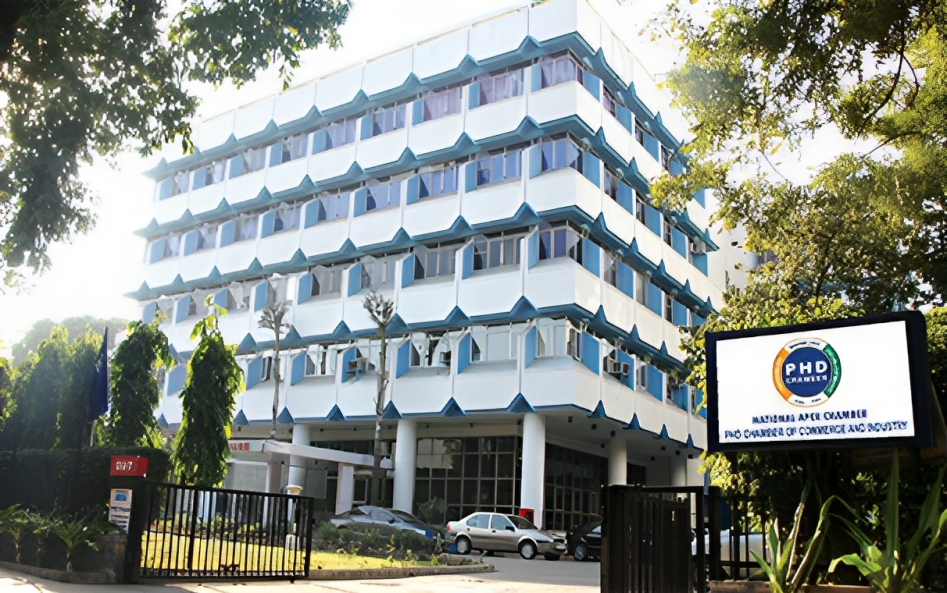
PHDCCI submits economic memorandum to Fin-Min ahead of Union Budget 2024-25
NEW DELHI : In anticipation of the Union Budget for the fiscal year 2024-25, the PHD Chamber of Commerce and Industry (PHDCCI) has submitted a comprehensive memorandum on the economy to the Union Finance Minister, Smt Nirmala Sitharaman. The memorandum incorporates suggestions gathered through surveys, analysis, and inputs from PHDCCI members across the nation.
According to the memorandum by the chamber, at the heart of the recommendations lies the recognition of the global economic landscape’s challenges, marked by geopolitical uncertainties, high interest rates, and a decelerating world economic growth rate.
To counter these challenges, the PHDCCI proposes calibrated measures to boost domestic sources of growth, ensuring a sustained higher economic growth trajectory for India.
The global economic scenario, shaped by the aftermath of the COVID-19 pandemic, conflicts in Ukraine and Gaza, and rising living costs, projects a slowdown in global growth according to IMF projections.
However, amidst these challenges, the Indian economy has displayed resilience, with the IMF forecasting robust growth of 6.3 per cent in 2023 and 2024. The Reserve Bank of India (RBI) projects a 7 per cent growth rate for the Indian economy in 2023-24, emphasising the resilience and potential of the nation.
The PHDCCI memorandum highlights the nation’s commitment to a green economy, as evidenced by the Union Budget for 2023-24. It emphasises renewable energy, reduced reliance on fossil fuels, and sustainability, aligning with the target of achieving net-zero carbon emissions by 2070. Calibrated steps are underway to transform India into a green economy.
The chamber also mentions that India’s attractiveness for new ventures and investments is acknowledged, and the memorandum suggests more emphasis on tier two cities, rural areas, and expanded digital connectivity to further improve the ease of doing business.
Streamlining approval processes, maintaining regional balance, and simplifying sector-specific foreign direct investment (FDI) policies are recommended to encourage investment .
Reducing the overall cost of doing business, including capital, power, logistics, land, labour, and compliance costs, is a key focus. This, it is argued, will enhance industry and export competitiveness, reduce imports, and bolster domestic capabilities.
India’s emergence as a global startup hub, boasting over 100 unicorns, is celebrated in the memorandum. However, it calls for enhanced support in terms of access to the Government e-marketplace (GeM), technology, AI-based development, and a strengthened incubation framework.
The memorandum recognises the logistics sector as the backbone of India’s economy, advocating for advanced technology applications like IoT, automation, blockchain, cloud computing, AI, and robotics to improve logistics development.
The MSME sector’s development, improvement of value chains, and increased access to capital are deemed critical for their contribution to India’s economic growth. Prioritising digital infrastructure, literacy, and skill development is recommended to propel the services sector, particularly software exports, further.
The memorandum underscores the importance of rural infrastructure, private sector participation, and waste reduction in agriculture’s growth.
Infrastructure development, across sectors, is emphasised as vital for India’s overall economic growth, with a suggested investment of at least 10 per cent of GDP.
To stimulate private investments, the memorandum recommends measures such as fueling consumption, optimising capacity utilisation, easing business processes at the factory level, rationalising the cost of doing business, taxation reforms, and investing in state-of-the-art infrastructure.
Addressing India’s labour force composition, characterised by a high proportion in agriculture and the informal sector, the memorandum calls for creating a highly skilled talent base and a strong human capital ready to serve the nation.
In the healthcare sector, there is a plea to bridge gaps in access, invest in competent medical professionals, and improve the quality of medical education. Specialised training and preparedness for healthcare personnel are emphasised.
To generate employment, accelerated reforms in the agriculture and food processing sector, along with significant public investments in agriculture infrastructure, are recommended.
Rural infrastructure logistics and cold chain reforms are deemed essential for boosting the food processing industry and rural entrepreneurship, leading to increased participation in global agriculture and food exports.
The PHDCCI’s memorandum outlines a comprehensive roadmap to navigate the challenges and capitalise on opportunities for sustained economic growth, urging the government to consider these recommendations in the upcoming Union Budget for 2024-25.
